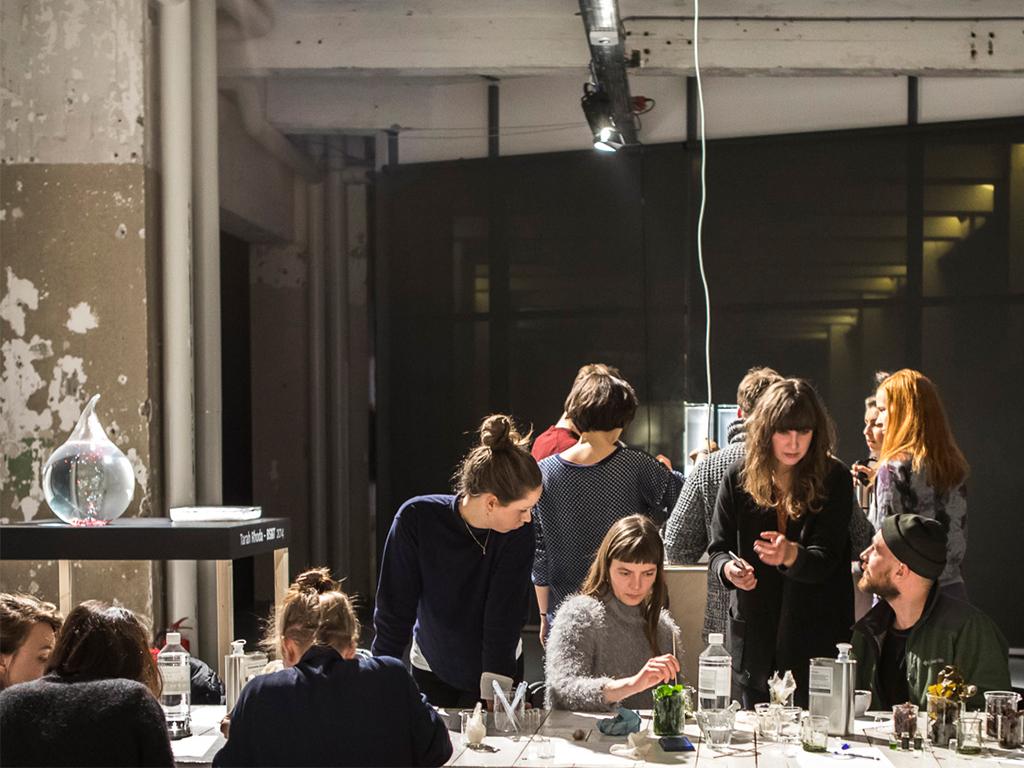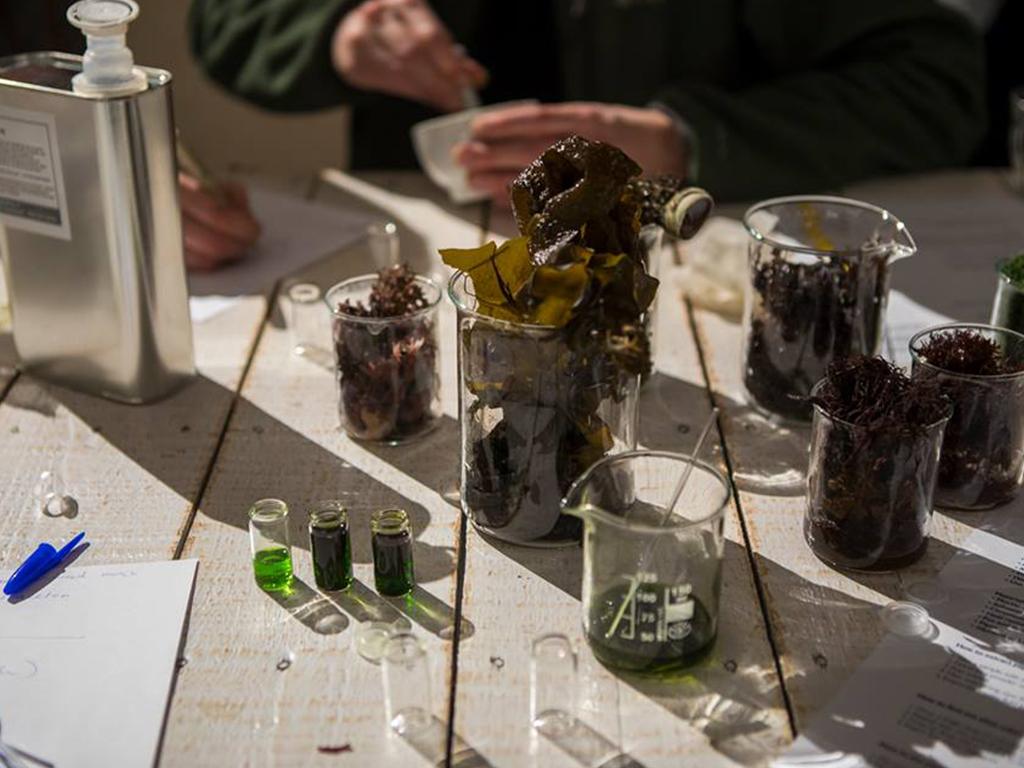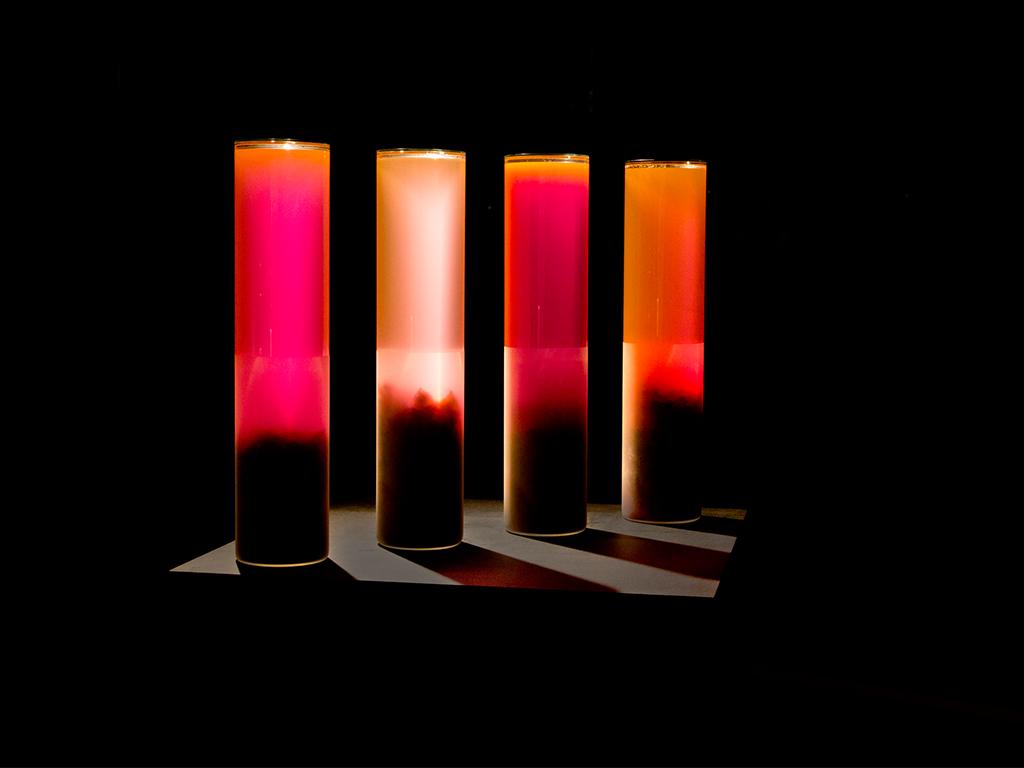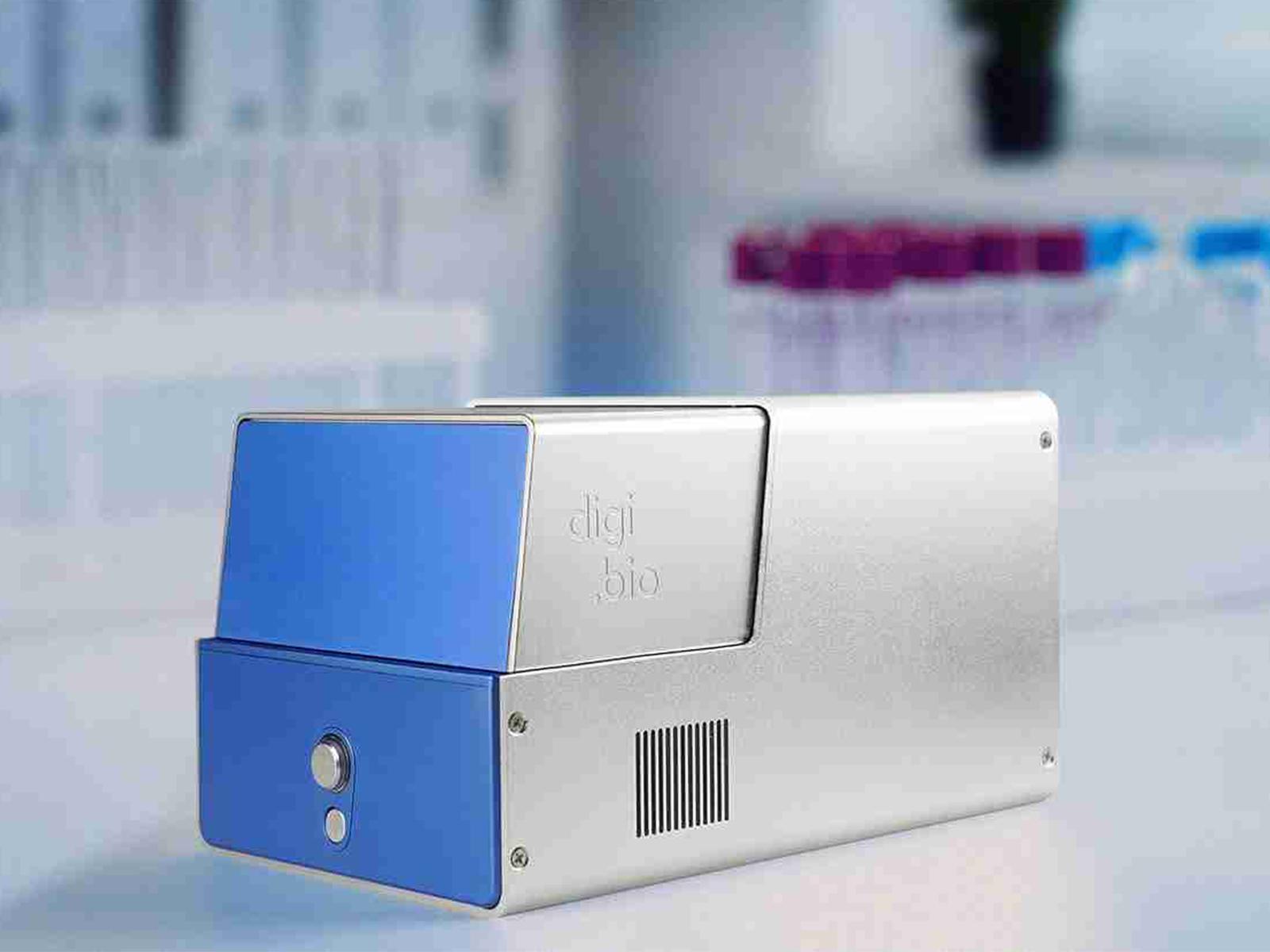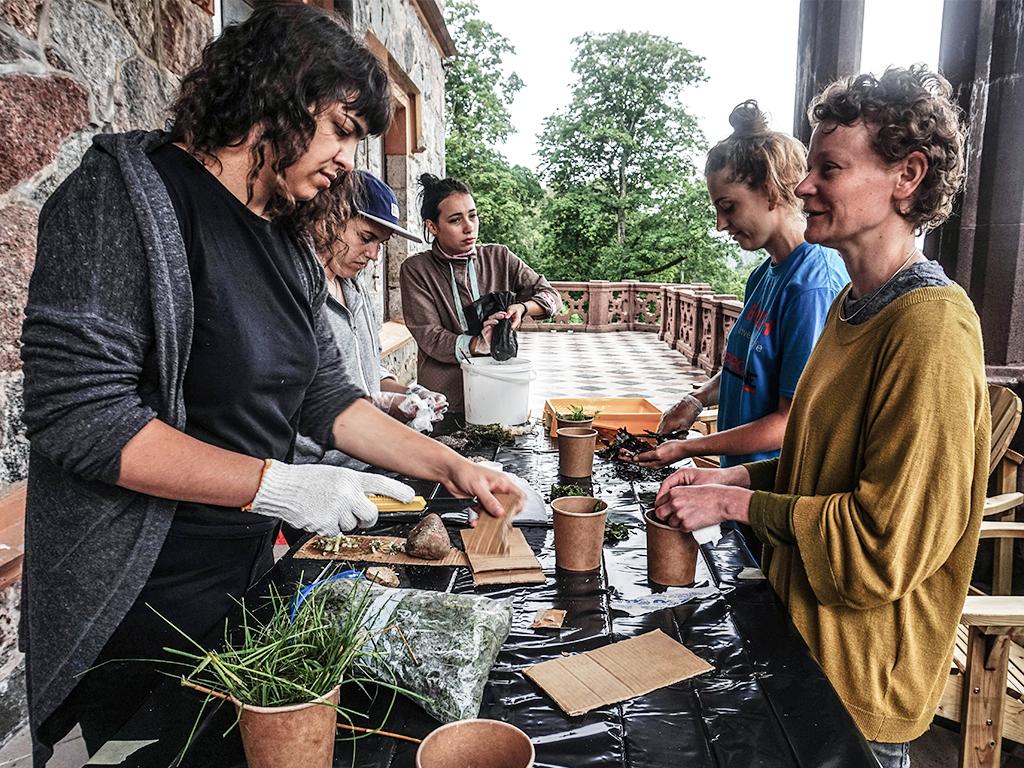Estuaries, where fresh water of the river blends and mingles with the salt water of the sea, are extraordinary locations. The tension between the sweet and salt results in a diversity of plants and animals in the estuary. Interruptions of the composition by for example human population on the estuary banks, may lead to the death of, but also blooming of certain types of organisms. This disintegration and bloom can result in beautiful coloration.
During this workshop you will discover what kind of pigments are secluded in algae and how they can be isolated. Subsequently, you will be shown and taught some applications for the extracted pigments, like how to make your own bio-ink or how you can use them to dye textiles. The method used here is applicable to a variety of organic matter, which means you can use your newly gained knowledge for a diversity of substances provided by mother nature.
This workshop is given by Xandra van der Eijk and Roland van Dierendonck, developed in collaboration with Federico Muffatto.
Xandra van der Eijk is a bio-artist who explores the world of materials and colours secluded in nature. The tension between salt and sweet and the intervention of man is what inspired bio artistic researcher Xandra van der Eijk for her bio installation 'Estuary'. In this installation ‘Estuary’ salt-water algae and other microbes slowly reveal their presence in a fascinating visual process of shifting colour from pink, orange and purple to green, yellow and even black.
For her artistic research projects Xandra makes use of Waag’s Wetlab. Thanks to the knowledge and help of various regular visitors of the Wetlab, Xandra is able to understand (micro)biological processes and investigate her ideas. During the workshop Xandra will show and tell you about her work on the bio-installation Estuary. Read more about Xandra and the Wetlab here.
Roland van Dierendonck is a biologist, media artist and regular user of the Wetlab. Recently Roland collaborated with Günter Seyfried, Hansjörg Petschko and Federico Muffatto on a bioart project wherein a picture was coded into DNA followed by modification of the picture using the CRISPR-Cas DNA cutting method.
Do-It-Together Bio is a series of workshops with a biology-related topic in which artists and scientists are involved. This edition is part of the European project 'Doing it together science' .
This project has received funding from the European Union’s Horizon 2020 research and innovation programme under grant agreement no. 709443.
